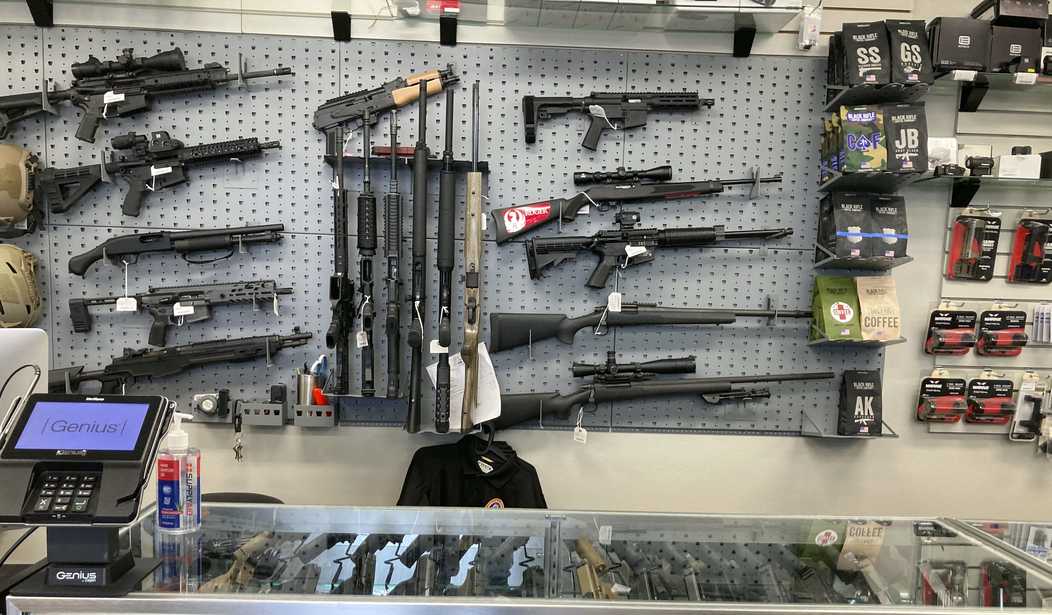After the 2018 murders at Marjory Stoneman Douglas High School in Parkland, Florida, the state legislature approved a new restriction on the Second Amendment rights of residents in the state; a ban on purchasing firearms for those under the age of 21.
The National Rifle Association quickly filed a lawsuit (called NRA v. Swearingen) challenging the constitutionality of the new law, and on Thursday U.S. District Judge Mark Walker upheld the law; not necessarily on the merits, but because the judge said he was bound by existing Eleventh Circuit Court of Appeals precedent.
In his decision, Walker noted that bans on those under the age of 21 from purchasing firearms date back to the mid-19th century, and that by 1900 “roughly 41% of states had restrictions involving 18-to-20-year-olds and firearms.” Those restrictions predate most prohibitions on felons and those adjudicated by courts as mentally ill from possessing firearms, which Walker reasoned makes bans on guns for under-21s “longstanding” laws that, under the Eleventh Circuit’s previous guidance, must be upheld.
Still, Walker makes it clear that he has real concerns about the precedent set by the Eleventh Circuit and the damage that it can do to the Second Amendment rights of young adults.
After Florida suffered one of the worst school shootings in our nation’s history, its Legislature faced a colossal challenge, forced to make difficult decisions while under tremendous time pressure. This Court does not envy the difficult balance the Legislature had to strike.
That said, this Court has grave concerns about the balance the Legislature struck. While the Act appears broad on its face, as Defendant argues, many 18-to-20-year-olds who wish to obtain a firearm will be able to do so through parents or other relatives. Whether this is an effective check on rash decision-making, this Court cannot say. But it is clear that this law will have little impact on many, if not most, 18-to-20-year-old Floridians. In short, then, it is not clear how much the Act does to prevent tragedies like the one at Marjory Stoneman Douglas High School.
Equally troubling to this Court is that, as Plaintiffs point out, “to those 18-to20-year-olds who do not have parents or legal guardians . . . or do not otherwise have anyone willing to gift or loan a firearm to them,” the Act functions as a total ban. Worse still, it is likely that these particular 18-to-20-yearolds are the ones who actually need firearms to defend themselves: they are likely independent, likely to live in dangerous neighborhoods, and likely to have families and children of their own. Why should the 20-year-old single mother living on her own be unable to obtain a firearm for self-defense when a 20-year-old living with their parents can easily obtain one?
It’s a good question, and it’s not the only concern raised by Walker.
In addition to its concerns over who suffers the burdens imposed by the Act, this Court has grave doubts about a Second Amendment framework that finds certain persons or activities either protected or entirely unprotected.
For example, although “the constitutional rights of students in public school are not automatically coextensive with the rights of adults in other settings,” Bethel Sch. Dist. No. 403 v. Fraser, 478 U.S. 675, 682 (1986), students do not “shed their constitutional rights to freedom of speech or expression at the schoolhouse gate,” Tinker v. Des Moines Indep. Cmty. Sch. Dist., 393 U.S. 503, 506 (1969). This Court sees no reason why the Second Amendment, unlike other fundamental rights, should be an all or nothing affair.
Finally, while this Court agrees that Florida can enact gun control legislation, perhaps even sweeping and categorical legislation, when the state designates entire classes of persons as too irresponsible to exercise their rights, it “must be able to justify its designation.” Kanter, 919 F.3d at 465–64 (Barrett, J., dissenting). Under the Eleventh Circuit’s current body of caselaw, Florida escapes that responsibility altogether. If this Court were writing on a “blankish” slate—accepting Heller, as it must—it would subject the Act to a more searching inquiry.
But these concerns presuppose that the Second Amendment applies at all. And given the Eleventh Circuit has found restrictions with much less historical support longstanding, this Court must conclude that restrictions on the purchase of firearms by 18-to-20-year-olds are also longstanding. And because the Eleventh Circuit has held that longstanding prohibitions categorically fall outside the Second Amendment, this Court holds that the Second Amendment does not apply to the purchase of firearms by 18-to-20-year-olds.
The case will undoubtably be appealed to the Eleventh Circuit Court of Appeals, but given the appellate court’s precedent, it’s almost a given that Florida’s ban on gun sales to under-21s will be upheld there as well. Eventually this case will reach the Supreme Court, however, and I found it interesting that Judge Walker chose to cite Justice Amy Coney Barrett’s dissent in Kanter v. Barr as evidence that the Eleventh Circuit precedent is allowing Florida to ban an entire class of adults from exercising their Second Amendment rights without having to justify the decision.
For a ruling that went against the plaintiffs, it’s actually not a horrible opinion. Judge Walker gave the NRA plenty of legal ammunition to choose going forward, and in the meantime other Second Amendment organizations like the Second Amendment Foundation and Firearms Policy Coalition are bringing suit against similar bans in states like Minnesota. It may some time for these cases to reach the Supreme Court, but sooner or later justices will have a chance to weigh in on whether or not the Second Amendment rights of the People can be denied to people under the age of 21.









Join the conversation as a VIP Member